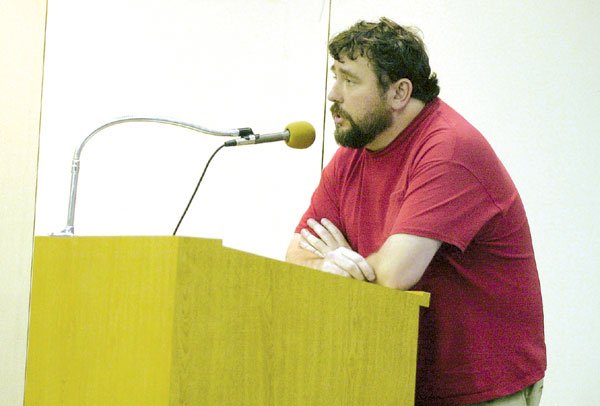GILROY
– Trustees put an end Thursday to a weeks-long controversy over
a Gilroy High School grading policy that had parents questioning
whether the district’s stated push toward academic excellence was
sincere or just a public relations fraud.
GILROY – Trustees put an end Thursday to a weeks-long controversy over a Gilroy High School grading policy that had parents questioning whether the district’s stated push toward academic excellence was sincere or just a public relations fraud.
Trustees unanimously decided at last night’s regular school board meeting to reinstate the practice of adding value to grades earned in the school’s rigorous Advanced Placement courses. The new grading policy, which the board will formally adopt at a special May 28 session, includes the practice of giving students a citizenship grade separate from their academic grade.
“In some regards, I think it’s good this matter reached the board level,” Superintendent Edwin Diaz said. “We’d be negligent not to have a board policy that communicates to the community our support for academic rigor. I’ve spent four days with teachers and administrators at Gilroy High and it’s clear there is a theme of creating a culture and environment focused on academics. Weighted GPAs are more aligned with that at this point in time.”
The board stopped short, however, of supporting a motion by Trustee David McRae that would have directed the high school to immediately recalculate student grade point averages.
Diaz said the board would be violating the state’s open meeting laws if it approved the policy change Thursday. The grading policy discussion was listed on the agenda as an information item only, meaning the board cannot vote on the matter until it is rescheduled as an action item.
“Does Gilroy High School really need the board’s decision to re-weight the grades immediately? (The high school) unweighted them with little or no notice to anybody, why can’t they just flip the switch to weight them back?” GHS parent Doris Dorn said after the session.
Recalculating GPAs as soon as possible could especially help high school seniors when applying for jobs, scholarships and late admission into universities.
Several parents, most of whom are members of the Alliance for Academic Excellence, spoke in support of using weighted grades Thursday. Pleased by the board’s final decision, parents left the session still wondering if some faculty and administration at Gilroy High School were on the same page as, what the parents said was, a “majority” of parent and community opinion.
Last week, a leadership committee at the high school voted 6-4 against grade weighting, backing up a policy adopted by former principal Wendy Gudalewicz and implemented this year. The controversial policy changed the GPAs, and in some cases the class ranks, of this year’s seniors while they were in the midst of sending in college and scholarship applications.
“I’m getting really bitter having to come here and fight these battles,” GHS parent Jackie Stevens said. “There are people at the high school who don’t have their finger on the pulse of this community. I don’t know exactly why.”
Under a weighted system, an A student in AP biology, for instance, receives 5.0 grade points, while an A student in regular biology gets 4.0 grade points.
Proponents of weighted grades say the padded GPAs accurately reflect the higher standards of AP classes and encourages students to enroll in the college prep courses. They also claim that going against the norm, by not weighting AP grades, puts GHS students at a disadvantage when competing for scholarships and admission to the most elite universities.
“We may have already put them in jeopardy,” GHS parent Marty Bress told trustees. “It seems to me highly unusual no one in the senior class was accepted by an Ivy League School or got into Stanford this year.”
The school’s current policy of unweighted grades received no support Thursday by trustees, parents or students who spoke at the meeting. However, GHS math teacher Wayne Scott presented five reasons he believes an unweighted grading system is superior.
Scott argued that students receive no benefit from a weighted system since universities recalculate GPAs. The ninth-year teacher also said a weighted system encourages students to avoid the electives like band or yearbook that make them well-rounded students and take some courses solely to pad their GPAs.
“I want students in my AP classes who are there for personal, professional or academic reasons. I do not want students in my AP classes who are enrolled strictly in pursuit of a mythical GPA brass ring,” Scott said.














